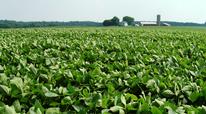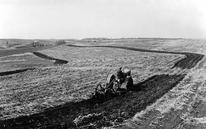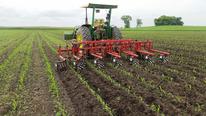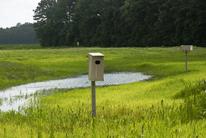By Constance Carlson
Edited by Kristine Moncada, Gigi DiGiacomo, Craig Sheaffer and Nicole Tautges
Eric and Angie Foster* grew up in a small farming community in west central Minnesota. Eric had learned to farm by working with his father and brothers on the family farm while growing up. Eric and Angie met in high school and married shortly after graduation. For several years, they lived in a city a few hours from their hometown where they started to raise a family while Eric worked in sales. They had moved away from their small town because, as a young couple, they couldn’t afford to buy their own farmland and Eric’s father was still farming the family land.
About ten years after moving away, Eric’s brother, Jack, bought a piece of land near their father’s farm. Shortly thereafter, a farm a few miles from both Jack and Andrew’s land came up for rent. Eric and Angie’s families encouraged them to come back home and start farming as a family again. Eric and Angie decided the time was right to go back to their roots.
Farming during Eric’s early years back on the farm was a time of great change and expansion in the U.S. farm industry. Farmers were shifting from growing a variety of crops to a standard rotation of corn and soybeans. More and more farms were moving toward what we now call “conventional” farming practices—using synthetic fertilizers to manage nutrient needs and pesticides to manage insect and weed pressures.
After a few years of renting, Eric and Angie were able to purchase land, and their enterprise grew to about 300 acres. Like other farmers in the Midwest, they farmed conventionally growing corn and soybeans. They also managed a 300-head farrow-to-finish hog operation.
While Eric decided to adopt conventional farming methods, his brother Jack decided to farm using organic methods. This was an unusual choice at the time because national organic standards and best management practices had not yet been formally established. Jack and Eric would often talk about their farming challenges and, though they had different farming methods, they enjoyed problem solving together and often shared equipment and labor. These benefits helped Eric and Angie weather the ups and down of farming, raise their family, send their kids to college, and enjoy their lives as farmers in the community.
Too Late to Change?
The years passed and each family member managed his farm in his own way. Eric sold his hog operation and farming methods continued to change to meet the market challenges and consumer demands. One of the biggest changes that occurred was the dramatic growth in demand for organics. As the organic market steadily grew, Jack tried to convince Eric to start converting his acres to organic. Jack offered to mentor him through the organic transition process, showing him how to apply for certification and helping him to manage weeds and pests without the aid of chemical inputs.
Eric and Angie were both nearing retirement age and were concerned about work load, land values and the future of their farm. They now owned their acres and wanted to see the farm stay in the family. However, only one of their sons, Daniel, was a farmer. Over the years, Daniel had grown to become an important part of the resource and labor sharing between the families, but, like his father, he farmed conventionally. If they transitioned to organic, how willing would Daniel be to farm organically? Would this be a barrier for him to continuing to work the family farm?
Eric also wasn’t convinced that the prices were worth the effort and work required to change his farming methods. He knew, from talking with Jack, that he wouldn’t be able to sell his crops as organic for the three-year organic transition period, and that their operation might suffer financially.
After watching his brother farm, Eric knew that organic farming was more labor-intensive, requiring more frequent field scouting, equipment cleaning, and hands-on management compared to his current conventional system. He was concerned about whether he’d be able to physically handle the extra work. He was especially worried about weed management. He had a low tolerance for weeds in his fields and wasn’t convinced he could manage them in an organic system. He wasn’t getting any younger and had no interest in “walking the rows” —manually pulling or chopping weeds.
However, Eric and Angie were also people who loved the outdoors. They enjoyed nature, were avid hunters and had raised their kids to be the same. Both Eric and Angie enjoyed watching the colorful birds who came to the feeders around their house. Over time, Eric noticed they just weren’t coming around like they used to. He commented to Jack later that, “The farm was silent. No birds. No songs. It was eerie.” It raised real concerns about the chemicals being sprayed on the acres around their house and how they were caring for the natural environment around them. They considered how transitioning to organic farming might benefit the wildlife they loved so much.
Are the benefits of stronger market prices and less pesticide exposure enough to outweigh the extra work and financial uncertainty of transitioning to organic production? Was it too late to make the change to organic? Would their son Daniel be interested in farming organically?
* While these cases describe actual situations, names have been changed to protect the identity of participants.
Access the complete decision case study with all educational materials (pdf) >>>
You may cite this publication as:
Carlson, C. 2017. Too Late to Transition? A Decision Case Study in Principles for Transitioning to Organic Farming: e-Learning Materials and Decision Case Studies for Educators. K. Moncada, C. Sheaffer, G. DiGiacomo, and N. Tautges (Eds). University of Minnesota, St. Paul, MN.



